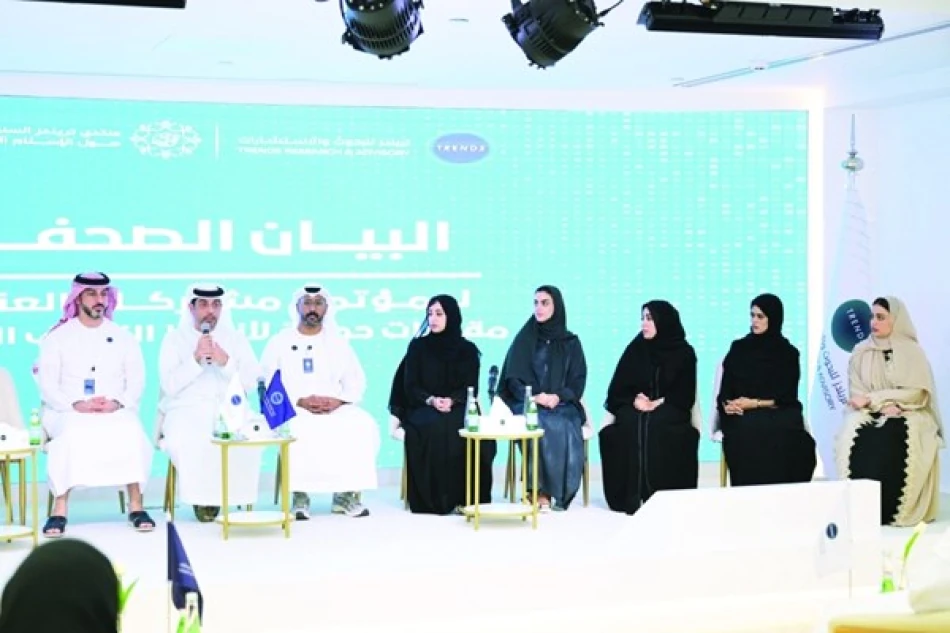
Trends Forum Hosts 5th Annual Political Islam Conference
UAE Think Tank Tackles Rising Global Extremism with New Research Framework
The UAE's Trends Research & Advisory is positioning itself at the forefront of counter-extremism research, hosting its fifth annual Political Islam forum next week in Abu Dhabi. The event signals the Emirates' growing ambition to become a regional hub for security studies while addressing what officials describe as a critical surge in ideological extremism worldwide.
Beyond Religious Labels: A New Approach to Extremism
The forum, titled "Commonalities of Violence: Modern Approaches to Ideological Extremism Patterns," represents a shift from traditional counter-terrorism frameworks that often focus on specific religious or ethnic groups. Instead, Trends Research is advocating for a cross-cutting analysis that examines shared behavioral patterns across different extremist movements.
Dr. Mohammed Abdullah Al Ali, CEO of Trends Research & Advisory, emphasized that the forum comes "at a critical time when the world is witnessing an escalation of ideological extremist currents that have become a common threat to international security and stability, regardless of their religious, national, or ideological backgrounds."
Strategic Timing and Regional Context
The timing reflects broader regional dynamics. The UAE has increasingly positioned itself as a moderate voice in Middle Eastern affairs, particularly following the Abraham Accords and its diplomatic pivot toward normalization with Israel. This forum aligns with Abu Dhabi's strategy of building soft power through intellectual leadership on security issues.
The research center's focus on "commonalities of violence" rather than specific ideologies suggests an attempt to depoliticize extremism studies—potentially appealing to international partners who may be sensitive about targeting particular groups or movements.
Global Anti-Terrorism Award: Expanding Influence
The event will also announce the winner of the Trends Global Award for Combating Terrorism and Extremism, a relatively new initiative that positions the UAE-based center as a global arbiter in counter-extremism efforts. This award mechanism mirrors similar initiatives by established Western think tanks and represents the UAE's broader strategy of building institutional influence in international security discourse.
Academic Diplomacy in Practice
For regional observers, the forum represents what scholars call "academic diplomacy"—using research and intellectual gatherings to advance foreign policy objectives. The UAE has invested heavily in such initiatives, from hosting global climate summits to establishing international university campuses, as part of its post-oil economic diversification strategy.
The focus on Political Islam, while maintaining academic neutrality, also serves domestic and regional political interests. The UAE has historically opposed Islamist movements like the Muslim Brotherhood, viewing them as threats to traditional Gulf monarchies.
Research Methodology and Global Implications
Hamad Al Hosani, director of the Political Islam department at Trends, indicated that the research approach seeks to identify "mechanisms that make violence a common language" across different extremist groups despite their varying ideological foundations.
This methodology could prove valuable for international security agencies struggling with the evolution of extremist threats beyond traditional Al-Qaeda or ISIS models. Recent years have seen the rise of diverse extremist movements, from white supremacist groups in the United States to Hindu nationalist violence in India, suggesting that cross-cutting analytical frameworks may indeed be necessary.
Market and Policy Impact
For security consultancies and defense contractors, the UAE's growing emphasis on counter-extremism research creates new opportunities in a region with substantial defense budgets. The Emirates' approach of hosting international forums while developing indigenous research capabilities could influence how other Gulf states approach security studies and academic investment.
The forum's emphasis on "modern approaches" also suggests potential applications of artificial intelligence and data analytics to extremism research—areas where the UAE has been investing heavily as part of its technological advancement goals.
Most Viewed News

 Layla Al Mansoori
Layla Al Mansoori






